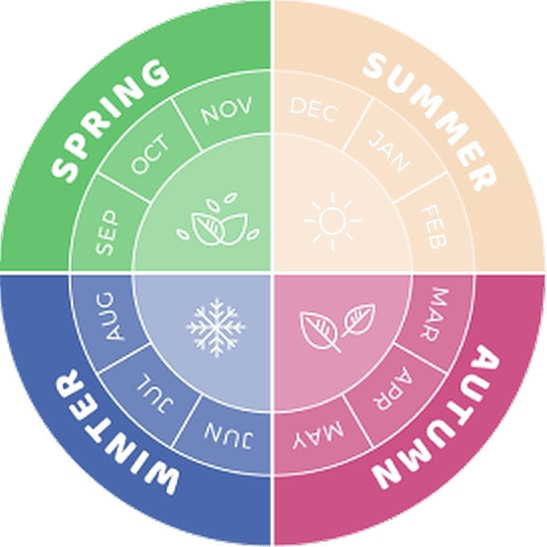Rich in folate (vitamin B9) and vitamin C with a source of thiamin (vitamin B1), orange juice helps psychological wellbeing and keeps your mind running smoothly.
*When eaten as part of a healthy varied diet.
Top Tip: You can keep your oranges at room temperature, but once you’ve squeezed them into juice, it’s time to pop it in the fridge.
Top Tip: To help get more juice out of your fresh oranges, place the oranges in hot water for 10 seconds before you squeeze them.
Oranges are in season from May to November.

The recommended amount of fruit you should eat is 2 serves per day.
(Source: Australian Dietary Guidelines, 2013)
½ cup of orange juice (125mL) counts as 1 serve of fruit.
|
Serving size: 150g(1 orange peeled raw) |
||||||||||||||||||||||||||||||||||||||||||||||||||||||||||||||||
|
||||||||||||||||||||||||||||||||||||||||||||||||||||||||||||||||
|
Source: Aust Food Comp Data or ^ USDA |
The recommended amount of fruit you should eat is 2 serves per day.
(Source: Australian Dietary Guidelines, 2013)
½ cup of orange juice (125mL) counts as 1 serve of fruit.